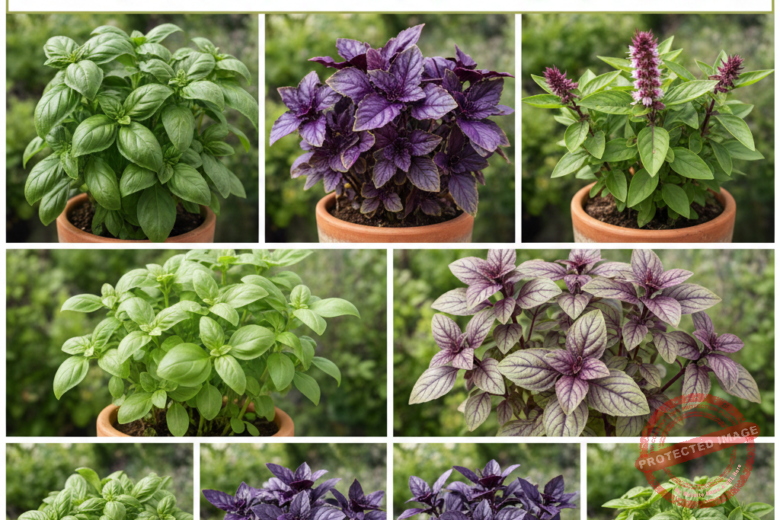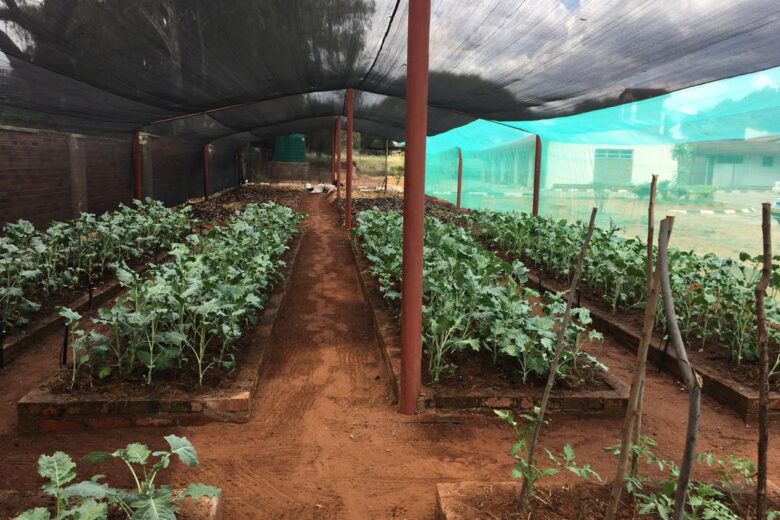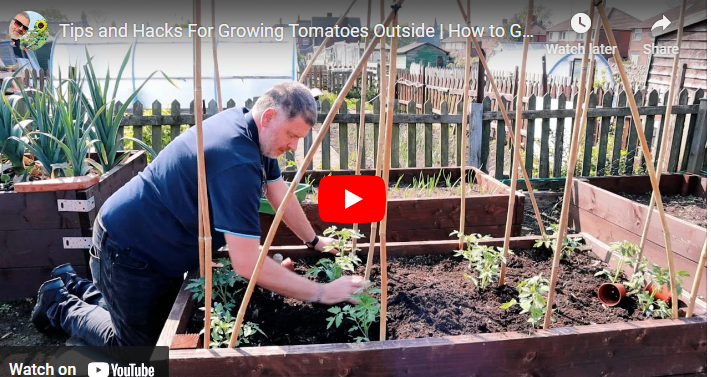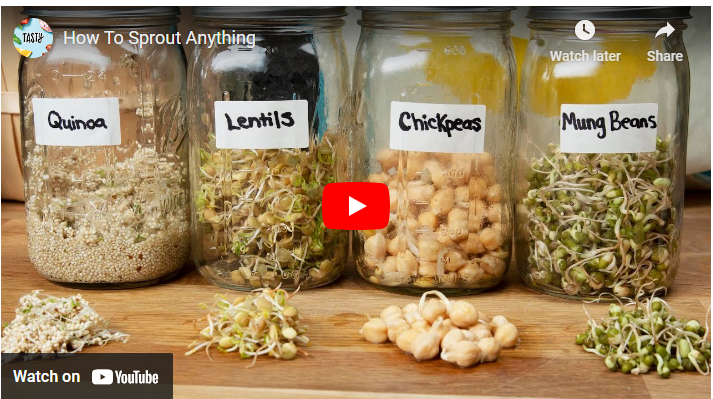Are you living in Nigeria and looking for a way to plant pepper in the dry season? You’ve come to the right place!
The steps involved in growing pepper in dry season in Nigeria include choosing a suitable location, soil preparation, selecting pepper varieties, planting pepper seed, frequent watering, and so on.
This brief guide will help you understand the basics of planting pepper in the dry season in Nigeria. You’ll learn about the ideal soil conditions, necessary tools and supplies, and the best planting techniques to maximize your pepper yield.
With the right knowledge and preparation, you can have a successful pepper crop even in the driest of seasons! So let’s get started!
How to Plant Pepper in Dry Season in Nigeria Step By Step Guide
The secret to successfully planting pepper in dry season in Nigeria has been revealed here. Pepper is constantly in high demand in Nigeria because of its everyday use for cuisine preparation.
So, if you are ready to learn, you can read through the step by step instruction outlined and discussed below.
Read Also: [Beginners Guide] How to Plant Onions in Dry Season in Nigeria
Step 1 – Choose a Suitable Location
When selecting a location to grow your pepper plants during the dry season in Nigeria, it’s important to choose an area that receives ample sunlight and has well-drained soil.
You’ll want to search for a spot that receives at least 6-8 hours of direct sunlight each day in order to guarantee your plants get enough light to prosper.
Read Also: [Beginners Guide] How To Grow Vanilla In Nigeria
Moreover, excellent drainage is essential for pepper plants, as they cannot tolerate waterlogged soil adequately. Look for a region with soil that drains effectively and doesn’t keep extra water.
Step 2 – Soil Preparation
It is necessary to create a favorable environment for the plants to grow and produce healthy yields. The soil should be properly aerated and fertilized to ensure adequate water and nutrient retention.
Read Also: [Beginners Guide] How To Plant Pear In Nigeria
You need to first remove any weeds, rocks, and debris from the area. This will help to prevent the spread of diseases and pests that can affect crop yields.
Then, you should till the soil to a depth of 8-10 inches and the organic matter should be added to the soil. The soil’s capacity to hold onto nutrients and water will be enhanced as a result.
You should test the soil for its chemical and physical properties to determine the necessary fertilizers and amendments that are needed. The soil should also be tested for its pH levels to determine if it is suitable for the type of crop being planted.
Read Also: [Beginners Guide] How To Grow Spinach In Nigeria
Step 3 – Select Pepper Varieties
When selecting pepper varieties for dry season planting in Nigeria, there are several factors to consider.
Consider the climate and weather conditions in the region. Different pepper varieties may be better suited for different climates. Additionally, consider the soil type and moisture levels in the region.
This can help determine the type of pepper varieties that will be best for the region. Also, consider the length of the dry season and the expected yield. This can help determine which varieties are best suited for the optimal yield.
Read Also: [Beginners guide] How To Grow Okra in Nigeria
Also, consider the local market demand and preferences for specific pepper varieties. This can help identify which varieties are most likely to be in demand.
Step 4 – Plant Pepper Seed
You can decide to either start the pepper seeds indoors or in a nursery bed, and then transplant them to the cultivated land. If you opt to transfer, you should use a seedling tray or pot and sow the seeds around 1/4 inch beneath the surface.
Keep the soil moist and warm until the seeds sprout. If you go for the nursery bed option, prepare the bed and place the seeds around 1/2 inch deep.
Read Also: Seasonal Planting Guidelines for Native Yam In Nigeria [Farmers Guide]
Water the bed frequently to ensure the soil retains moisture. You may also buy sprouted seeds from a nearby nursery.
Once the seedlings reach around 6 inches in height and form a good root system, transplant them to their final location in the garden. Make sure you leave a distance of 18 inches between the plants for proper growth.
If you opt to plant the pepper seeds directly on the Nigerian farm beds, all you need to do is to sow the seeds around 1/4 to 1/2 inch deep and leave 18 inches of space between them. After that, cover the seeds with soil and lightly press down.
Read Also: [Beginners Guide] How To Plant Coconut In Nigeria
Step 6 – Frequently Water your Pepper Plants
In order to ensure that your pepper plants are properly watered during the dry season planting, it is important to water them frequently.
Watering cans, hoses, and irrigation systems can all be used to water your pepper plants.
Watering cans are great for smaller-scale watering, while hoses and irrigation systems are best for larger-scale watering.
Read Also: [Beginners Guide] How to Grow Pineapple in Nigeria
It is important to pay attention to the amount of water you are providing to your plants, as too much or too little can result in plant stress or even death. Likewise, it is important to water the soil, not the leaves, in order to avoid any fungal growth.
Make sure you are watering your plants at least once a week during dry season planting to ensure the proper growth and development of your pepper plants.
Step 7: Protect Pepper Plants from Pest and Diseases
To protect pepper plants from pests and diseases, you should practice good garden sanitation. This means cleaning up weeds, fallen leaves, and debris around the plant.
Read Also: How To Grow Grapes in Nigeria [Beginners Guide]
It is also important that you keep an eye out for any signs of pests or diseases and take action if necessary. Consider using a natural insecticidal soap or neem oil to control pests and diseases.
You should also rotate your crops every year to avoid the buildup of pests and diseases in the soil.
More so, be sure to water your plants properly and fertilize them regularly for the best possible growth.
Read Also: How To Grow Groundnut in Nigeria [Beginners Guide]
Step 8: Mulch the Plants
Mulching can be an effective way of maintaining soil moisture and preventing weeds from sprouting.
All you need do is to lay down an organic layer, consisting of straw or leaves, near the base of your pepper plants. You can also use inorganic layers like polyethene bags, but organic layer are preferable.
This will help to conserve moisture within the soil and provide a cooling effect, which is particularly beneficial during the scorching and dry conditions of the dry season in Nigeria.
Step 9: Harvest Your Ripe Peppers
Most types of peppers take roughly two to three months to mature. Upon maturity, they will be solid and vibrantly colored.
When harvesting, use a sharp knife or scissors to carefully cut them off the plant in order to avoid damaging the stem or the plant. To keep your peppers growing and productive, be sure to pick them regularly.
Benefits of Planting Pepper in Dry Season
- Planting pepper in the dry season helps to avoid diseases and pests which are commonly found in the wet season.
- It helps to conserve moisture in the soil which is essential for the growth of pepper plants.
- The dry season offers increased sunlight, which helps to speed up the ripening of peppers.
- The dry season helps to reduce the chances of fungal and bacterial diseases.
- Planting pepper in dry season helps to reduce the cost of irrigation.
- The dry season also helps to reduce the risks of plant diseases caused by the wet season.
Challenges of Planting Pepper in Dry Season
- The dry season can cause the soil to become dry and hard, making it difficult to cultivate pepper plants.
- The lack of moisture in the soil during the dry season can lead to poor germination and stunted growth of pepper plants.
- The dry season can cause the pepper plants to suffer from extreme heat and drought which can affect their growth.
- The dry season can also cause the pepper plants to become too dry and brittle, leading to their premature death.
- The dry season can also cause the pepper plants to become prone to pests and diseases.
- Inadequate irrigation during the dry season can also lead to decreased yield of pepper plants.
Best Practices of Planting Pepper in Dry Season
- Make sure to choose pepper varieties that have higher drought tolerance.
- Plant pepper during cooler times of day or in the evening.
- Plant pepper in raised beds or containers with well-draining soil.
- Mulch around pepper plants with bark, straw, or wood chips to retain moisture.
- Water pepper plants deeply but infrequently.
- Use a drip irrigation system or soaker hoses to ensure water gets to the roots.
- Keep weeds away from the plants to reduce competition for water.
- Add compost to the soil to improve drainage and water retention.
- Provide shade for the plants during hot, sunny days.
- Increase humidity by misting the plants or putting a plastic sheet over the bed.
Common Diseases and Pests of Pepper Plants
#1. Bacterial Spot
Bacterial spot is caused by a bacterial infection that can cause leaf spots, blights, and lesions on the fruit and stems of pepper plants.
#2. Fungal Diseases
Fungal diseases such as powdery mildew, early blight, and anthracnose can cause the leaves of pepper plants to become discolored and distorted.
#3. Aphids
Aphids are tiny insects that can suck the sap from pepper plants, resulting in discolored leaves, stunted growth, and deformed fruit.
#4. Whiteflies
Whiteflies are small insects that can cause leaves to turn yellow and drop off pepper plants.
#5. Spider Mites
Spider mites are tiny, spider-like creatures that can cause leaf yellowing and stippling on pepper plants.
#6. Cutworms
Cutworms are caterpillars that can chew through the stems of pepper plants, resulting in wilting and death.
#7. Tomato Hornworms
Tomato hornworms are large caterpillars that can cause significant damage to pepper plants.
#8. Stink Bugs
Stink bugs are large, oval-shaped bugs that can feed on the leaves, stems, and fruits of pepper plants.
How Much is Pepper Sold in Nigeria
The cost of pepper in Nigeria depends on the quantity and quality of the pepper. Generally, pepper is sold for between 300 and 500 Naira per kilogram.
Is Pepper Farming Profitable in Nigeria
Pepper farming can be highly profitable in Nigeria due to the high demand and prices for pepper. However, pepper farming requires a lot of time and effort, and it is essential for farmers to use good agricultural practices to ensure a good harvest.
Varieties of Pepper in Nigeria
There are several varieties of pepper in Nigeria, including Habanero, Cayenne, Scotch Bonnet, and African Bird’s Eye. Each variety has its own unique flavor, color, and heat.
More so, Hybrid pepper varieties exhibit a higher yield potential in comparison to open-pollinated varieties. Moreover, they demonstrate better resilience towards pests and diseases.
Best Time to Plant Pepper in Nigeria
The best time to plant pepper in Nigeria is during the rainy season, which typically occurs between April and October.
This is the time when the soil is moist and the temperatures are warm, providing ideal conditions for pepper plants to flourish.
Planting Season of Pepper in Nigeria
The planting season for pepper in Nigeria depends on the type of pepper and the region where it is being grown.
Generally, the best time to plant pepper in Nigeria is during the rainy season, which typically lasts from March to August.
However, some varieties of pepper, such as the habanero pepper, can be grown all year round in some regions of the country.
How to Plant Green Pepper in Nigeria
To plant green pepper in Nigeria, follow these steps:
- Choose a location with well-drained soil and plenty of sunlight.
- Prepare the soil by adding compost or organic matter to enrich the soil.
- Sow the seeds in rows, about 1 cm deep and 15 cm apart.
- Water the seeds regularly, ensuring the soil is kept moist but not waterlogged.
- When the seedlings are about 10-15 cm tall, transplant them to the main field, spacing them about 30 cm apart.
- Continue to water the plants regularly and apply fertilizer as needed.
- Control pests and diseases using organic pest control methods.
Pepper Farming in Nigeria PDF
There are several resources available in PDF format that provide guidance and information on pepper farming in Nigeria.
These resources cover various topics such as crop selection, soil preparation, planting, irrigation, pest and disease management, harvesting, and post-harvest handling.
These resources can be downloaded and accessed online for free, making them easily accessible to farmers and other stakeholders in the agricultural sector.
Pepper Farming in Nigeria Nairaland
Nairaland is a popular online forum in Nigeria where farmers and other stakeholders in the agricultural sector can discuss pepper farming and other agricultural-related topics.
Nairaland has a dedicated section for agriculture where users can share information and ask questions about pepper farming in Nigeria.
Pepper Farming Profit
Pepper farming can be profitable in Nigeria if done properly. The profitability of pepper farming depends on several factors such as the size of the farm, the cost of inputs, and the market demand for the crop.
Farmers can maximize their profits by adopting good agricultural practices such as proper soil preparation, efficient irrigation, pest and disease management, and proper harvesting and post-harvest handling.
Farmers can also increase their profits by selling their produce directly to consumers or by value-adding the crop.
Yellow Pepper Farming in Nigeria
Yellow pepper is a variety of pepper that is grown in Nigeria. To grow yellow pepper, follow the same steps as planting green pepper, but ensure that the seeds are for the yellow pepper variety.
Yellow pepper requires similar growing conditions as green pepper and can be grown during the same planting season.
How Profitable is Pepper Farming in Nigeria
The profitability of pepper farming in Nigeria depends on several factors such as the size of the farm, the cost of inputs, and the market demand for the crop.
However, pepper farming can be profitable if farmers adopt good agricultural practices and are able to secure a reliable market for their produce.
Some farmers in Nigeria have reported high profits from pepper farming, making it a viable option for small-scale and commercial farmers alike.Top of Form
Cost of Starting a Pepper Farm in Nigeria
The cost of starting a pepper farm in Nigeria depends on several factors such as land acquisition, seed and fertilizer costs, labor costs, and marketing expenses.
A small-scale pepper farm on one acre of land can cost anywhere from 200,000 to 500,000 naira to start up.
However, with good planning, efficient use of resources, and proper marketing, a pepper farm can be profitable and generate good returns on investment.
Conclusion
Planting pepper in the dry season in Nigeria can be a challenge but is possible if you take the necessary precautions. It is important to choose a variety that is well-suited to the climate, use appropriate soil and compost, water your plants deeply and regularly, and provide adequate protection from the elements. By following these guidelines, you can successfully grow pepper in the dry season and enjoy the delicious fruit of your labour.



